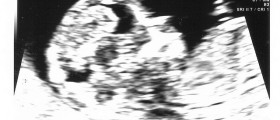
Women who have a miscarriage in the later stages of the first trimester, or the earlier stages of the second trimester, already had a well-established pregnancy with all the accompanying hormone levels. It is not uncommon for women who started miscarrying (as proven by vaginal bleeding, cramps, and an ultrasound that showed no fetal heartbeat) to still have morning sickness, extreme fatigue, and other frequent symptoms of pregnancy.
It is even possible for these symptoms to continue for a while after the miscarriage has been completed, and all fetal tissue has been expelled, or following a D&C procedure. Women may even be able to get a positive pregnancy test after a miscarriage. This happens because the hormonal picture will not immediately return to its normal, pre-pregnancy condition, and pregnancy hormones need time to leave the body. It is rare for pregnancy signs and symptoms to last for longer than two weeks following a miscarriage, but for some women it make take up to a month for all the pregnancy hormones to leave their body. This may be confusing and saddening, but it is also completely normal.
Pregnancy symptoms following a miscarriage are nothing to worry about, but do keep an eye out for a fever, feeling dizzy and lightheaded, or heavy abdominal pain. These can be signs of a uterine infection, and that is something that will require medical attention. Contact a doctor immediately if you have any worrying symptoms that can point to infection, or opt to visit the ER.
- www.nhs.uk/conditions/miscarriage/what-happens/
- www.nhs.uk/conditions/miscarriage/
- Photo courtesy of Kevin N. Murphy by Flickr: www.flickr.com/photos/knmurphy/3089162066/
















Your thoughts on this
Loading...